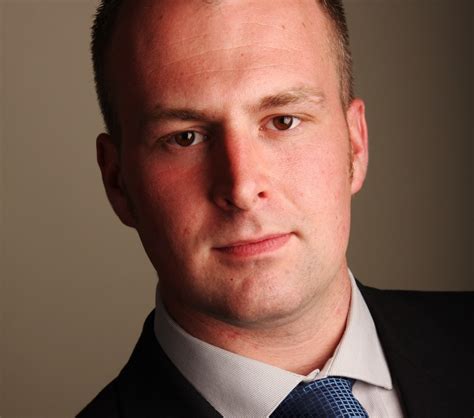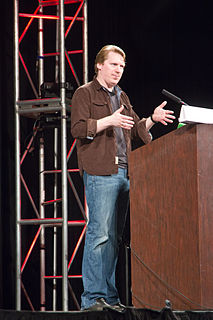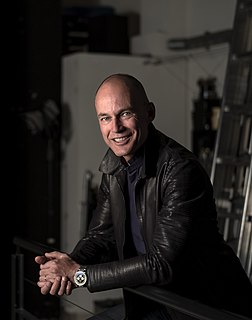A Quote by Ben Clarke
Sustainability is about profit...it is the opportunity of the century
Quote Topics
Related Quotes
We need to reverse three centuries of walling the for-profit and non-profit sectors off from one another. When you think for-profit and non-profit, you most often think of entities with either zero social return or zero return on capital and zero social return. Clearly, there's some opportunity in the spectrum between those extremes. What's missing is the for-profit finance industry coming in to that area. Look at the enormous diversity of the for-profit financial industry as opposed to monolithic nature of the non-profit world; it's quite astonishing.
Sustainability has become a religion in architecture - not that there's anything wrong with it - but I think it has to work both ways. Everyone thinks architecture has to be subservient to sustainability, but what if we thought in the other direction, like, what can sustainability do to make architecture more exciting?
I dismiss personal profit and focus exclusively on people and planet. That's what I call social business: a nondividend company dedicated to solving human problems. You can go all the way, forgetting about personal profit, being single-minded about solving problems. The company makes profit, but profit stays with the company.
Sustainability is not just about adopting the latest energy-efficient technologies or turning to renewable sources of power. Sustainability is the responsibility of every individual every day. It is about changing our behaviour and mindset to reduce power and water consumption, thereby helping to control emissions and pollution levels.
Countries were told they had no incentives because of social ownership. The solution was privatization and profit, profit, profit. Privatization would replace inefficient state ownership, and the profit system plus the huge defense cutbacks would let them take existing resources and an increase in consumption. Worries about distribution and competition or even concerns about democratic processes being undermined by excessive concentration of wealth could be addressed later.
Often, sustainability is discussed only in the context of energy. Energy sustainability is essential - but the word has a much broader meaning. It means long-term thinking about how we manage our businesses, invest in social spending, and plan for the future. This requires vision and leadership, and it requires citizen engagement.
The things I learned from my parents, what was deeply ingrained in their generation, is this idea of opportunity and the freedom to have an opportunity. The way the United States was thought of is as a place you can have this chance to do anything, to say, 'This is my idea, and I get to offer it to you, and if you like it, I can profit from it.'































